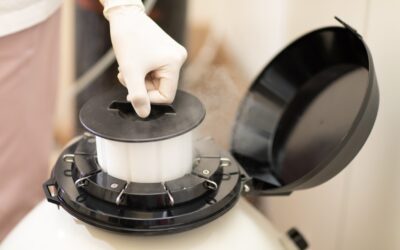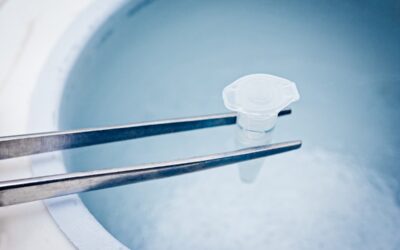At our IVF clinic, we understand that navigating the world of fertility treatments can be overwhelming.
If you’ve been diagnosed with low AMH levels, you may have many questions about your fertility and the best treatment options.
In this blog, we will answer some of the most frequently asked questions about low AMH levels, including what it means, how it affects fertility, and what treatments are available.
Let’s begin
20+ Years Of Experience as Fertility Specialists
20 Years Of Experience as a Fertility Specialists
National Fertility Awards 2023
Call Us
+917042874533
Related Read : Can IVF work with low AMH?
FAQs related to Low AMH levels
- What is AMH?
AMH, or Anti-Mullerian Hormone, is a hormone produced by your ovary’s primordial cells or follicles. Each girl child is born with millions of these follicles.
The number of these follicles decreases with age. So when a girl child reaches the age of puberty, the number of the follicle.s has been reduced to lacs. This drop in the follicles continues until Menopause.
- What does AMH indicate?
Primordial and Preantral follicles produce AMH. So the AMH level indicates the number of eggs or egg reserves you have in your ovary. Putting simply, if your AMH level is low, then the number of eggs in your ovary is less.
But this does not mean that your pregnancy chances are low. So even if your AMH value is low, you can still get pregnant. The only catch is you might have to try for a longer period to get pregnant.
Moreover, if you are undergoing an IVF treatment, the AMH levels also indicate how your ovary will respond to the medications.
Book An Appointment
Follow Us On
- What is the normal value of AMH?
This is another common question we often ask at our IVF clinic. The normal value of AMH is around 2 to 6.8 ng/ml. If your AMH value is below 1.5 ng/ml, we call it low AMH.
Similarly, if the value is 0.5 ng/ml, it’s considered very low. But again, we would like to mention that a low AMH value does not indicate that you cannot get pregnant.
- What causes low AMH?
As mentioned, AMH is produced by Primordial and Preantral follicles in your ovary. But as you age, the number of these follicles decreases, and hence the production of AMH also drops.
In short, it’s a natural process. As you age, your AMH levels will decrease with the decreasing follicles.
Another reason for low AMH could be a genetic factor. If you have any genetic condition like Galactosemia or Turner’s syndrome, it can lead to low AMH value.
So, the low AMH value can be attributed to any autoimmune condition.
Moreover, if you have undergone any Chemotherapy or Radiotherapy, there is a strong possibility that your AMH might drop. The reason is these treatments decrease the number of egg follicles that produce AMH.
Finally, any health condition like Endometriosis might also lead to a decrease in your AMH value.
Related Read : Low AMH symptons and signs
- What are the symptoms of low AMH?
Unfortunately, there are no symptoms of low AMH. There might be some minor signs, but they will most probably slip out from your observation.
So there are no direct symptoms that tell you that the AMH level in your body is low.
But you can track your menstrual cycle, as low AMH might lead to irregular cycles. If your cycle is becoming shorter or irregular, this could indicate low AMH levels in your body.
If your blood flow during the period has decreased, it might be due to low AMH levels. So that, too, can be interpreted as a possible sign of low AMH.
- Does low AMH indicate poor quality of eggs?
As we mentioned earlier, AMH levels indicate just your egg reserves. Moreover, they also indicate how our injections and drugs will affect you during an IVF procedure.
They are, by no means, an indication of the quality of your eggs. So we can say that it’s more of a quantitative analysis instead of a qualitative one.
There are millions of women who conceive naturally, even with low AMH levels.
Related Read : How Does Low Amh Affect Fertility?
- Does low AMH cause miscarriage?
No, low AMH does not cause miscarriage. There are a plethora of reasons for miscarriage, including some genetic abnormalities or anatomical deformities that might lead to the miscarriage. But low AMH is not one of them.
- Does low AMH cause Menopause?
Low AMH is not responsible for Menopause in general. But if you have a low AMH, it might lead to early Menopause.
The reason is low AMH is a sign of a decreased number of eggs.. And once the egg reserve runs out, you will stop ovulating, reducing the production of AMH.
So if you have low AMH, it’s possible that you might enter into Menopause at an early stage. Based on the AMH levels, there is no way of predicting the exact time of Menopause.
But if your AMH level is extremely low, i.e., below 0.5 ng/ml, we can say your Menopause will come in the next 5 years or less.
- Is low AMH genetically related?
Yes, AMH is genetically related. So if your mother or your sister had early Menopause, you might have a low AMH. Moreover, any genetic abnormality or chromosomal abnormality might lead to low AMH.
Wrapping Up
The low AMH value is not an indicator of your pregnancy’s possibility. It’s an indicator of a low egg reserve. It just means that you might take longer than usual to get pregnant.
We hope these 9 FAQs on low AMH levels have given you insight into the condition. In case you need any more assistance, we are a call away. All you have to do is reach out; we will gladly help.
Share this with
Related Videos
Sperm Cryopreservation – Understanding what and why of it?
A ready reckoner on everything you need to know about sperm freezing and sperm preservation by IVF specialists of the best IVF centre in Ghaziabad – Gunjan IVF World Incidents of couples delaying their dreams of parenthood are increasing by the day. Couples are...
Things you need to know when considering Egg Freezing
IVF specialists of the best IVF centre in Delhi – Gunjan IVF World share valuable information on egg freezing through this informative article. Egg freezing or oocyte cryopreservation has become very common these days. It is a medical procedure that enables women to...
Follow Us On
About Author





